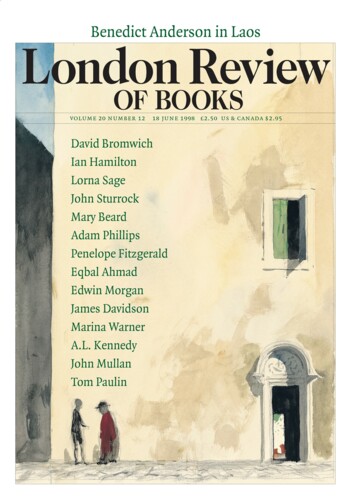I, too, write a little: Katherine Mansfield
Lorna Sage, 18 June 1998
These handsome volumes contain the last remains of Katherine Mansfield: a full and final transcription of the amorphous mass of hopeful notes, dissatisfied jottings, bad poems, sick scribbles, lists, sums and drafts, some dating back to her youth, which she left behind when she died in January 1923. All her bits and pieces are here, chronologically arranged and beautifully bound, with a picture of the cheap exercise books she used on the cover, their faded marbled fronts transformed into a bookish reliquary.





